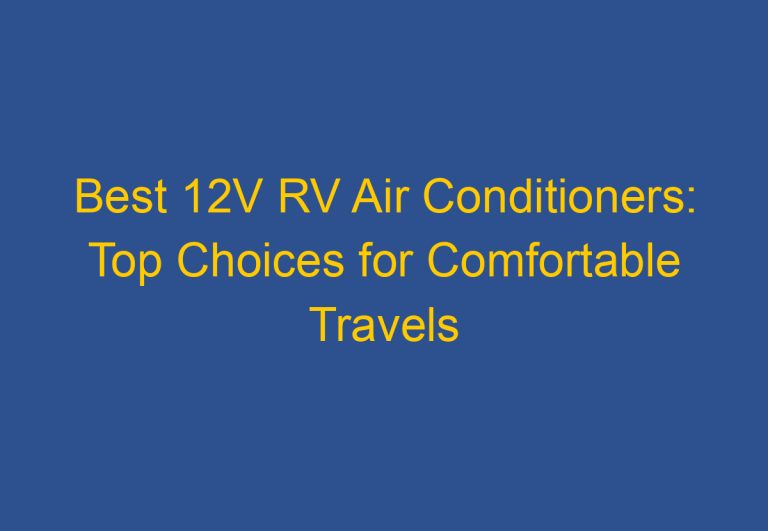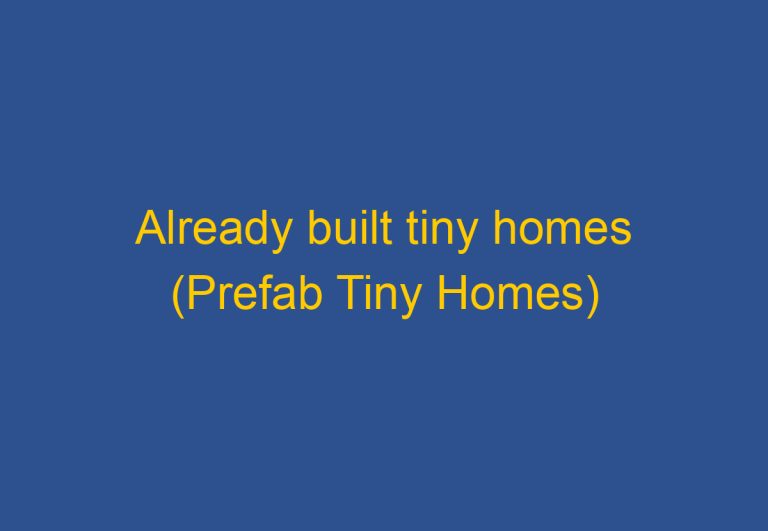Pros and Cons of Living in a Trailer Park: Is it Right for You?
Living in a trailer park can be an affordable housing option for many people. Trailer parks offer lower costs and more space than traditional apartments, making them an attractive option for those who are looking to save money. However, like any housing option, there are both pros and cons to living in a trailer park.
One of the main advantages of living in a trailer park is the sense of community that it provides. Many trailer parks have a close-knit community where residents look out for each other, creating a sense of belonging and camaraderie. Additionally, trailer parks often offer amenities such as playgrounds, swimming pools, and community centers that can enhance the quality of life for residents.
On the other hand, there are also some downsides to living in a trailer park. One of the biggest concerns is the lack of home appreciation potential. While manufactured homes can appreciate in value, those situated within a community may have a harder time. Additionally, trailer park living can sometimes come with negative stereotypes or stigmas attached to it, which can be a source of discomfort or embarrassment for some residents.
Benefits of Trailer Park Living
Trailer park living can offer a range of benefits to those who choose to call it home. From affordability and cost savings to community and lifestyle, there are many reasons why people choose to live in a trailer park. In this section, we will explore some of the key benefits of trailer park living.
Affordability and Cost Savings
One of the most significant benefits of trailer park living is affordability. Mobile homes are generally much cheaper to produce than traditional homes, which means that they are often much more affordable to purchase or rent. Additionally, trailer parks typically have lower property taxes and other taxes than traditional homes, which can result in significant cost savings for residents.
Community and Lifestyle
Another benefit of trailer park living is the strong sense of community that it can provide. Many trailer parks offer a tight-knit community where neighbors know and look out for each other. This sense of community can lead to lasting friendships and social events that residents can enjoy together. Additionally, many trailer parks offer shared amenities such as parks and playgrounds, which can provide a convenient and fun way for residents to spend time together.
Convenience and Amenities
Trailer parks are often located in convenient locations close to shopping centers, grocery stores, schools, and healthcare facilities. This can make it easy for residents to access the services and amenities that they need. Additionally, many trailer parks offer on-site facilities such as laundry rooms, which can provide added convenience for residents.
In summary, trailer park living can offer a range of benefits, including affordability, a strong sense of community, and convenient access to amenities and facilities. While there are some potential downsides to trailer park living, these benefits can make it an attractive option for many people looking for affordable and convenient housing.
Challenges of Trailer Park Living
Living in a trailer park has its advantages, but it also comes with its fair share of challenges. In this section, we will discuss some of the most common challenges that people face when living in a trailer park.
Perception and Social Considerations
One of the biggest challenges that people face when living in a trailer park is the negative perception that is often associated with it. Unfortunately, trailer parks have been stigmatized in popular culture, and many people associate them with negative stereotypes like “trailer trash.” This can be a source of embarrassment or shame for some people.
Space and Privacy Concerns
Another challenge of living in a trailer park is the limited space and privacy that comes with it. Trailers are generally smaller in size than traditional homes, and they often have limited yard space. This can make it difficult to entertain guests or have a private outdoor space. Additionally, trailers are often located close to one another, which can lead to limited privacy.
Financial and Regulatory Factors
Trailer park living can also come with financial and regulatory challenges. For example, park rules and regulations can be strict, and residents may face fines or other penalties for violating them. Additionally, utilities can be expensive, and utility costs can vary widely depending on the park. Rent increases can also be a concern, as some parks may raise rent prices on a regular basis. Finally, financing a trailer can be more expensive than financing a traditional home, as interest rates can be higher and property taxes may be more expensive.
In conclusion, while living in a trailer park can be an affordable and communal living option, it also comes with its fair share of challenges. It is important to carefully consider these challenges before deciding if trailer park living is right for you.
Frequently Asked Questions
What are the financial benefits and drawbacks of residing in a trailer park?
One of the most significant financial benefits of living in a trailer park is affordability. Mobile homes are much cheaper to produce than traditional homes, and the monthly rental rates are often lower than those of apartments in the same location. However, residents must consider the cost of purchasing and maintaining a mobile home, as well as the monthly rent for the lot. Additionally, mobile homes may not appreciate in value as traditional homes do, which can make it difficult to sell or recoup one’s investment.
How does the quality of life in a trailer park compare to traditional housing?
The quality of life in a trailer park can vary widely depending on the specific community. While some trailer parks offer communal amenities and a sense of community, others may have limited space and privacy. Residents may also face restrictions on what they can do with their mobile homes and the lot they rent. Additionally, trailer parks may have less access to public services and resources than traditional housing communities.
What are the common misconceptions about living in a mobile home community?
One common misconception about living in a mobile home community is that it is unsafe or undesirable. While some trailer parks may face issues with crime or poor living conditions, many communities are well-maintained and offer a welcoming atmosphere. Additionally, mobile homes can be just as comfortable and livable as traditional homes, with modern amenities and spacious layouts.
What should one consider before deciding to invest in a mobile home park?
Before investing in a mobile home park, potential buyers should carefully consider the financial and legal implications of ownership. This includes researching the market and local regulations, as well as understanding the costs of purchasing and maintaining the park. Additionally, buyers should consider the potential risks and liabilities associated with owning a mobile home park, such as liability for accidents or environmental damage.
Can you describe the social atmosphere typically found in trailer park communities?
Trailer park communities often have a strong sense of community and social camaraderie. Residents may organize events and activities, such as potlucks, game nights, or holiday celebrations, to bring neighbors together. Additionally, the close proximity of mobile homes can foster strong relationships and a sense of belonging among residents.
What are the security concerns associated with living in a trailer park?
Security concerns in trailer parks can vary depending on the specific community. Some parks may face issues with crime or vandalism, while others may have well-maintained security systems and a strong sense of community watch. Residents should take precautions to secure their mobile homes and belongings, such as installing locks and alarms, and reporting any suspicious activity to park management or local law enforcement.










